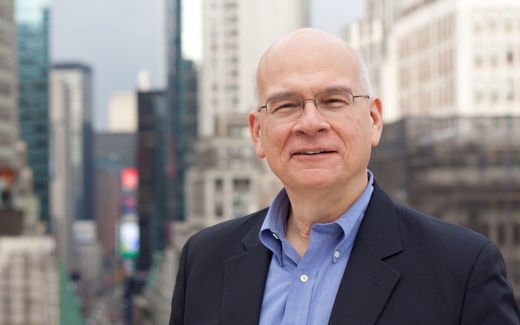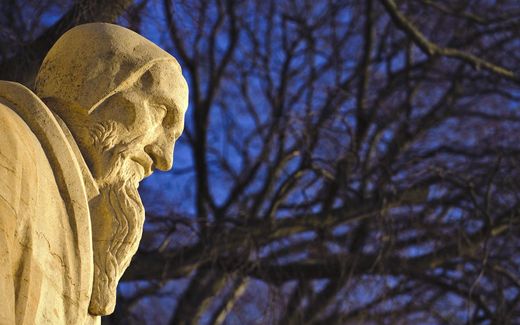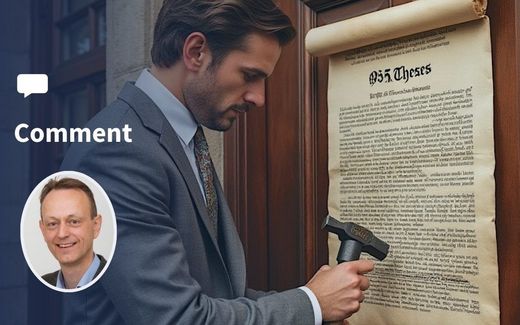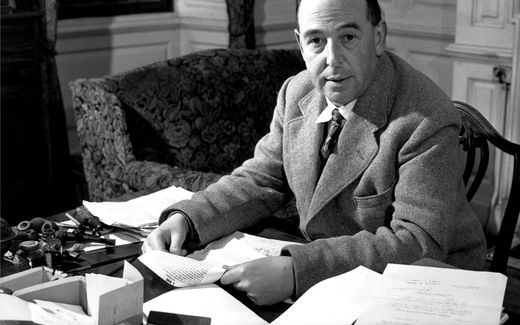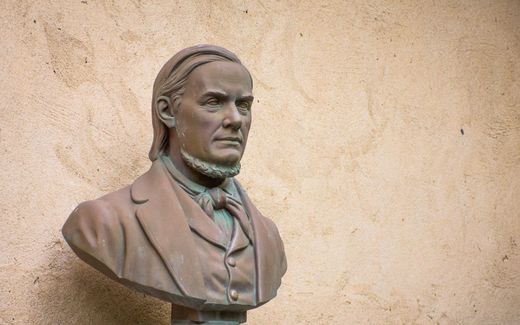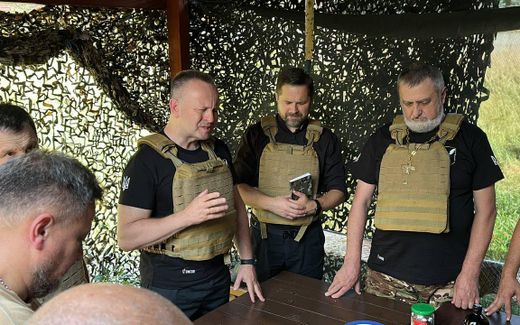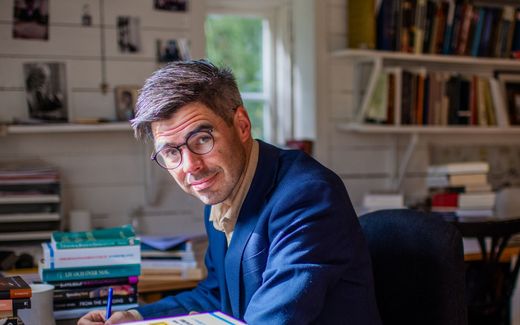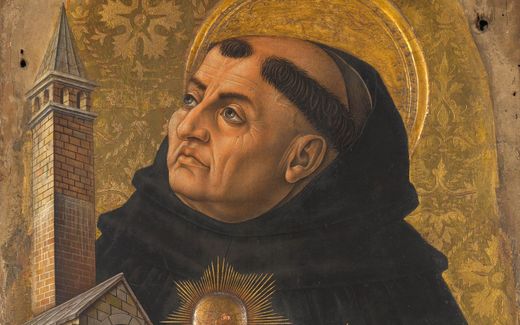To believe is to stop panicking, says Martyn Lloyd-Jones in a fictional interview
20-12-2024
Christian Life
Jaroslav Pleva, Zivot viry
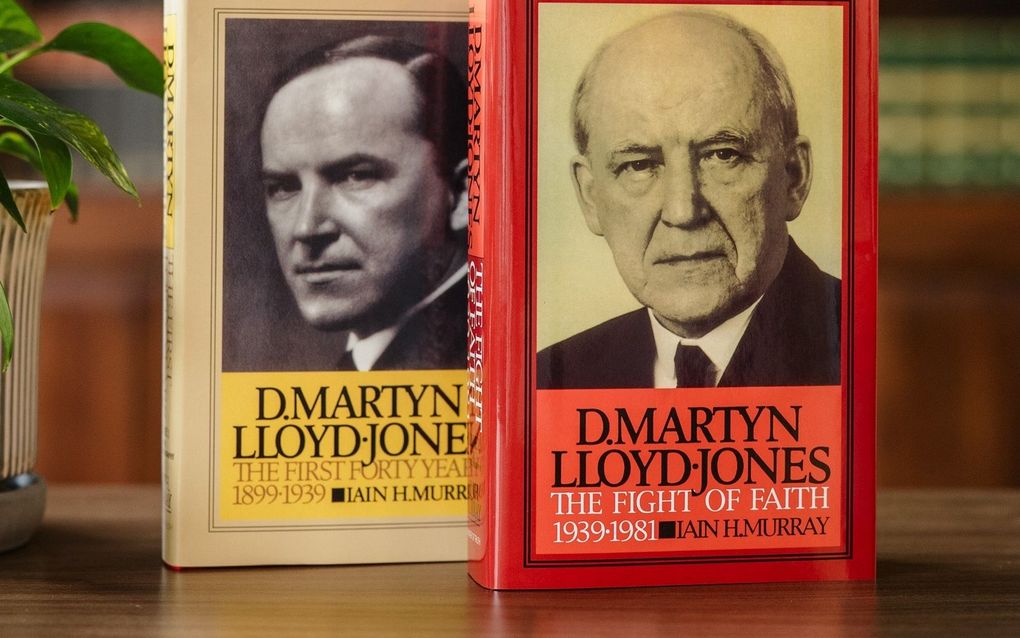
Two-volume biography about Dr Martyn Lloyd-Jones by Iain H. Murray. Photo Banner of Truth
Christian Life
Just a few days before the nineteenth century was over, the little Martyn Lloyd-Jones was born. Later in his life, he made a strong mark on the Evangelical world in English-speaking countries and beyond. This Friday is the 125th anniversary of his birth.
David Martyn Lloyd-Jones was a Welsh physician and an influential Protestant preacher. He lived from December 20, 1899 till March 1, 1981. Jaroslav Pleva wrote a fictitious interview with quotes from his work (sometimes paraphrased) for the Christian magazine Zivot viry from Czechia.
You’ve spent most of your life in London. Would you say you’re a typical Englishman?
“Absolutely not. I was born in Cardiff, Wales, and grew up in places associated with the Welsh revival. This has influenced my journey to God, and I am proud of my Welsh roots.”
Did you grow up in Wales, too?
“When I was 14, we moved to London. I went to grammar school and then medical school. After graduating, I took a job as an assistant to the Royal Family physician, Sir Thomas Horder, at St Bartholomew’s Hospital.”
Within two years, you became his principal assistant, earned a PhD from the University of London and became a fellow of the Royal College of Physicians. How has your work influenced you?
“I served in several prestigious hospitals where I gained valuable experience. Focusing on internal medicine gave me a deep understanding of human suffering and the physical aspects of health.
My clinical practice deepened my understanding of health and pain. It influenced my approach to pastoral care as I learned the interplay between physical and spiritual health. This laid the foundation for my later work in ministry and my commitment to reaching the whole person – body and soul.”
Was the doctor’s work not satisfying to you?
“You can’t say that. I’ve been drawn to both science and faith since I was young. I practised medicine for about ten years, and during that time, I gained extensive experience. However, I felt a call to ministry that became increasingly clear. I struggled with this call for two years.”
When you talk about a call, does that mean you heard something like the voice of God?
“I wouldn’t describe it as an audible voice, but I experienced deep conviction and guidance in my spirit. It was more of an inner sense of knowing that I was called to ministry. This conviction grew over time and confirmed my determination to follow God’s call.”
In 1938, you left the medical profession and began to devote yourself full-time to preaching and pastoral care. How did that happen?
“My call to ministry was gradual. In my medical practice, I experienced a growing burden regarding people’s spiritual condition. I felt prompted by the Holy Spirit to preach and teach.

I experienced more and more strongly that while medical care is important, it does not address the root of human suffering – our sin and separation from God. I felt an urgent desire to preach the Gospel because I knew that spiritual healing is of eternal value.
Finally, after much thought and prayer, I had clarity: I was to serve God full-time. The transition was challenging but fulfilling in the end because I was committed to the Gospel.”
You have sacrificed a well-established career as a successful physician to become a simple preacher of the Gospel. Have you never regretted your decision?
“It was no sacrifice on my part. I gave up nothing and got everything. I accepted the greatest honour God could bestow on a man – I became a messenger of the Gospel. To be a preacher is the highest, greatest and most glorious calling.”
You had no theological training. What do you think makes a successful preacher?
“I didn’t really care. I was concerned with what needed to be preached. Someone asked me, “How do you know you’ll be able to preach? As a physician, you can do so much for others. Why don’t you go that way and bring Christian influence to physicians? What if you suddenly find you can’t preach?” I replied, “I know what I want to preach and what needs to be preached, and I feel that somehow I can say it.””
You married Bethan Phillips in 1927. Can you briefly tell something about your family?
“Bethan and I met while in medical school, and she has been my most trusted companion throughout my life. She has been a great encouragement to me in ministry and has stood by my side in the most challenging times of pastoral work and preaching. We were blessed with two daughters, Elizabeth and Ann.”
You returned to Wales and took up a post at Bethesda Baptist Chapel in one of the poorest areas of the port town of Aberavon. What kind of congregation was it?
“It belonged to the Welsh Nonconformist tradition, which emphasised the authority of Scripture, personal faith, and separation from the state (Anglican) church. It held to Calvinistic theology, that is, this Reformed Baptist congregation emphasised God’s sovereignty in salvation, predestination, and the utter depravity of man.”

The congregation grew rapidly, and many people were converted to Christ. In 1939, you accepted a call to Westminster Chapel, one of the largest Nonconformist congregations in London. What was your ministry like?
“I preached three-quarters of an hour for believers on Sunday morning and one hour for unbelievers in the evening. In addition, I had a Bible study every Friday evening, that is, a more coherent exposition of the books of the Bible.”
With your expository preaching style, it took many months, sometimes even years, to lay out one chapter of the Bible verse by verse. For example, you went through Romans every Friday for twelve years and through Ephesians for seven and a half years. How do you explain the crowds of several thousand that came to the morning and evening meetings?
“I would say they were attracted to authority but not mine. I was just an expositor of Scripture. A preacher shouldn’t bring his own ideas and opinions; he should interpret and illuminate the message of the Bible. It is its power and authority that is attractive.

I think the ultimate goal of preaching is to help people perceive God and His presence. The Bible is the inspired Word of God, and its authority is absolute. Everything I preach is based on the deep conviction that only Scripture can give us the truth about God, humanity, and salvation.”
Awakening
Many people know you through your series of interpretations of the letters to the Romans and Ephesians. Why these books?
“Both of Paul’s letters delve deeply into the doctrines of grace, sin, and salvation. Romans systematically presents the Gospel, while Ephesians emphasises the church and our spiritual identity in Christ. They are foundational for understanding the Christian life.”
Are you a fundamentalist?
“I don’t like this label; firstly, it is very broad, and secondly, it has been discredited, especially in the US. I prefer to be a conservative evangelical.”
How would you characterise the difference between you and fundamentalists?
“I don’t mean to be rude, but I would say our approach is a little more intelligent. I don’t agree with the person who holds up a Bible and says, “I believe everything from beginning to end, every comma and period.”
I don’t think it’s right to reject reason and, for example, not distinguish between different figures of speech or idioms. Then, there is a danger of legalistic literalism. That, I would say, is the biggest difference between us.”
You have taught that the baptism of the Holy Spirit is a separate experience, the work of Jesus Christ, not identical with conversion and rebirth...
“This experience provides the Christian with an overwhelming assurance of God’s love and thus empowers him to witness boldly for Christ to an unbelieving world. Those who put it all together quench the Spirit.”
In your interpretation of Ephesians, you said: “Repent and ask God to send His Spirit and His love into you until you are melted and moved, until you are filled with His divine love, know His love for you, rejoice in it as His child, and look forward to the hope of His glory to come...”
“I am convinced that the teaching that the gifts of the Spirit have ceased to exist is not based on Scripture. The claim that these gifts ceased with the apostles’ time has no scriptural basis. I believe that there have undoubtedly been miracles since that time.
There is a need for God to be active in the world and to manifest His power miraculously. This is the only way that Christian preachers and those who witness for Christ can gain attention in a world that is hostile to Christianity today.”
What role does the Holy Spirit play in the life of a Christian?
“The Holy Spirit is certainly central to the Christian life. He is the one Who renews us, brings us to faith and dwells in us. Through Him, we are sanctified, empowered to live a holy life and equipped for ministry. The Spirit also opens our minds to understand the Scriptures and leads us to prayer. Without the Spirit, Christianity would be mere moralism – it is because of the Spirit that our faith is alive and real.”
And your opinion on gifts or “supernatural” manifestations?
“I believe the gifts of the Spirit were essential in the early church and remain relevant today. However, I caution against overemphasising “unusual” gifts such as tongues or prophecy without properly understanding their purpose. Gifts are given to build up the church and glorify God. It troubles me when emotional experiences mean more to some Christians than Biblical truth and Godly living.”
What is your view of the gift of tongues?
“It is, above all, a means of communication and praise directed towards God. It can serve as a personal prayer language and a sign to unbelievers.
However, I believe it should always be used in the church in an orderly manner, with clear interpretation, for edification. It must not become a source of division or deviation from the basic message of the Gospel. The focus should remain on glorifying God and building up the body of Christ.”
Should we expect an awakening?
“Revival is a sovereign act of God in which God pours out His Spirit in an extraordinary way. We cannot manufacture it using programs or methods. We can only pray, preach faithfully, seek God with all our hearts, and trust Him to act in His time.”
Controversy
At the National Evangelical Conference in 1966, you stirred up a great debate by calling for Evangelicals to withdraw from their theologically liberal denominations. What did you mean by that?
“The Anglican tradition is characterised by a strong emphasis on Scripture and liturgy. However, I am concerned about its tendency towards liberalism, especially in the modern context. I believe true faith must focus on the Gospel and not just church structures. I wanted to point out that many in their denominations are associated with and opposed to people who deny the essentials of salvation.”
Your friend John Stott (a theologian) was angry with you then. What do you think the church needs most today?
“A return to biblical preaching. We must preach the whole truth of God clearly and convincingly, not trusting in human wisdom or techniques, and trusting that the power of the Word and the Holy Spirit transforms lives.”
After years of experience, what would you say is the most important thing to know about God?

“It’s not about whether you know anything about Him; it’s about this: Do you know God? Do you enjoy God? Is God the centre of your life, the soul of your being, the source of your greatest joy? He should be. Christian faith is not just a matter of doctrine, understanding, or intellect but a state of the heart. Then, you have nothing to fear. To believe is refusing to panic.”
What do you think is the secret to a successful Christian life?
“Sometimes I think that the essence of the whole Christian attitude and the secret of a successful spiritual life is to understand only two things: I must have complete trust in God and absolutely no trust in myself.”
This interview is based on previous interviews and sermons from Dr Martyn Lloyd-Jones. The article was published first in the magazine Život víry and translated by CNE.news.
About David Martyn Lloyd-Jones
David Martyn Lloyd-Jones greatly influenced the evangelical movement in 20th-century Britain. He grew up as a Methodist, became a Reformed Baptist, and spoke out against the liberal Christianity that permeated many Christian denominations.
After ending his ministry at Westminster Chapel, he concentrated on counselling other ministers, correspondence, and attending conferences. His best-known publication is a fourteen-volume series of commentaries on Romans. He passed peacefully into eternity in his sleep on March 1, 1981.
Many of his sermons and lectures can be listened at through MLJ Trust.
Quotes from David Martyn Lloyd-Jones
“I’m grateful to God that He didn’t give me some of the things I asked for and that He slammed some doors in my face.”
+++
“The tragic mistake of the last hundred years has been the assumption that his environment causes all of man’s troubles and that all you have to do to change a person is to change the environment in which he lives. For it overlooks the fact that man has just fallen in paradise.”
+++
“The glory of the Gospel is that if the church differs from the world, it inevitably attracts it. Only then can the world listen to her message, even if it hated her at first.”
Related Articles

